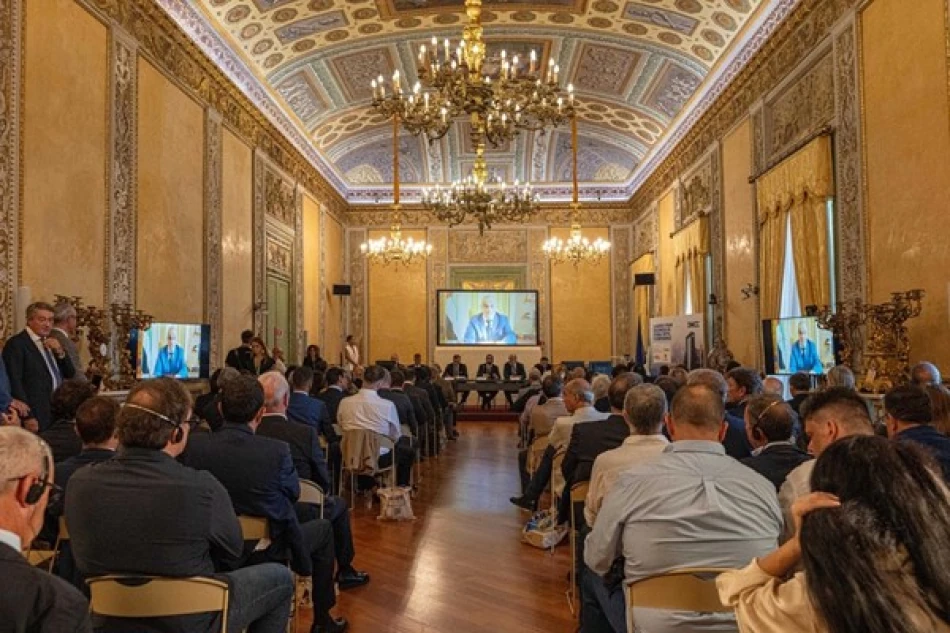
Italian Firms in Dubai Commodities Hub Surge 10% in 12 Months, Boosting Trade Ties
Dubai's Trade Hub Captures Italian Business Exodus as Europe Seeks Middle East Gateway
Dubai Multi Commodities Centre (DMCC) has recorded a striking 10% surge in Italian company registrations over the past year, bringing the total to over 530 firms as bilateral trade between the UAE and Italy reached $14 billion in 2024. This growth reflects a broader trend of European businesses pivoting toward Gulf markets amid economic uncertainty and Dubai's increasingly attractive regulatory environment.
Southern Italy Becomes New Focus for Dubai's Business Attraction Strategy
The milestone coincides with DMCC's completion of promotional tours in Naples and Palermo, targeting southern Italy's business community through its "Built for Trade" series. These events exposed over 260 Italian business leaders to Dubai's expanding role as a global trade and innovation hub, highlighting the emirate's strategic positioning between East and West.
The focus on southern Italy represents a calculated move beyond traditional northern industrial centers like Milan and Turin. Southern Italian businesses, often seeking international expansion opportunities and alternative trade routes, find Dubai's infrastructure and regulatory framework particularly appealing for accessing Asian and African markets.
UAE-Italy Trade Relations Hit New Heights
The $14 billion in non-oil trade between the UAE and Italy in 2024 underscores the deepening economic relationship between the two nations. This figure represents significant growth from previous years and positions Italy among the UAE's top European trading partners, alongside Germany and the United Kingdom.
What's Driving Italian Interest in Dubai
Several factors are attracting Italian companies to DMCC's free zone environment. The UAE's strategic location provides Italian manufacturers and traders with efficient access to high-growth markets in Asia and Africa, while Dubai's advanced logistics infrastructure offers cost-effective distribution networks that many European ports struggle to match.
Additionally, the UAE's stable regulatory environment and favorable tax structure present compelling alternatives to Europe's increasingly complex compliance landscape, particularly for small and medium enterprises seeking international expansion.
Regional Competition and Market Implications
Dubai's success in attracting Italian businesses reflects broader competition among Gulf states to capture European investment flows. While Saudi Arabia focuses on large-scale industrial projects and Qatar emphasizes energy partnerships, the UAE has positioned itself as the region's premier business hub for European SMEs and trading companies.
This strategy mirrors Singapore's approach in Southeast Asia, where a business-friendly environment and strategic location have made it the preferred regional headquarters for international companies. Dubai's 10% growth in Italian registrations suggests this model is successfully attracting European businesses seeking alternatives to traditional financial centers.
Implications for Global Trade Flows
Ahmed Bin Sulayem, DMCC's Executive Chairman and Chief Executive Officer, emphasized the momentum behind these developments, noting that the promotional tours demonstrate "significant potential for enhancing regional trade and investment between Dubai and southern Italy."
For investors and policymakers, this trend signals a potential reshaping of Mediterranean trade routes, with Dubai increasingly serving as a bridge between European manufacturers and emerging markets. The growth also indicates that mid-tier European companies are diversifying their operational bases, reducing dependence on traditional European commercial centers.
As geopolitical tensions and economic uncertainties continue to influence business decisions, Dubai's ability to attract Italian companies suggests the emirate is well-positioned to benefit from ongoing shifts in global trade patterns and European business strategies.
Most Viewed News

 Layla Al Mansoori
Layla Al Mansoori






